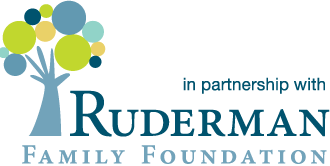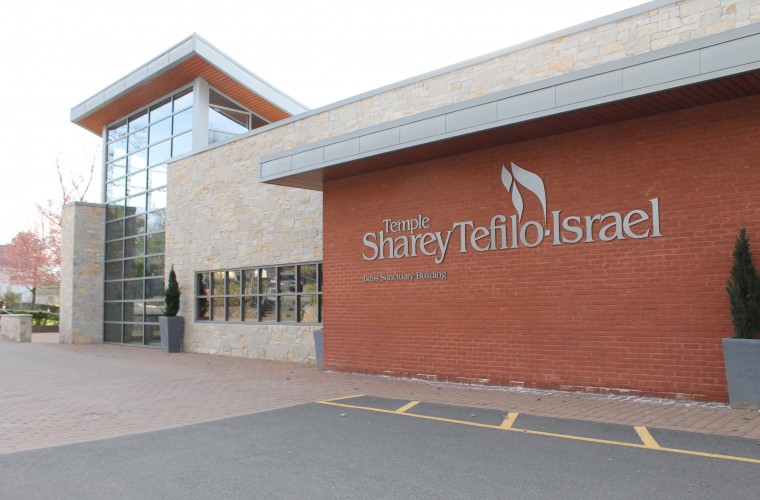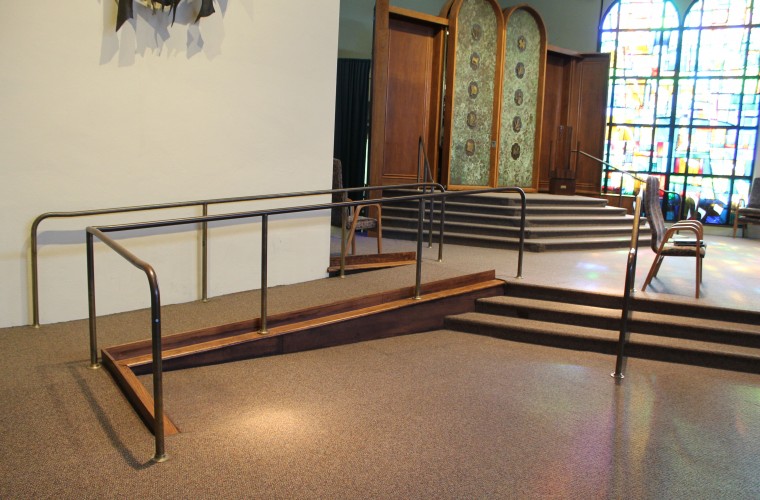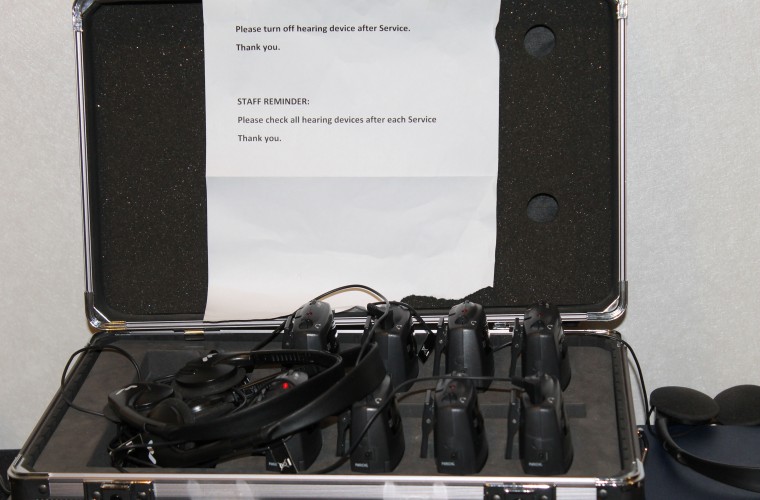Areas of Inclusion: Adults in Communal Life, Advocacy & Community Partnerships, Architectural & Physical Accommodations and Transportation, B’nai Mitzvah, Blindness, Deafness, Early Childhood Education, General Inclusion, Religious School, Worship, and Youth Group, High School, and College Programming
About the Congregation
432 Scotland Road
South Orange, NJ 07079
Number of Congregants: 1,800
Contact Information
Carol Paster, Early Childhood Education Director
973-763-4600
Inclusion Programming
Does this congregation have an inclusion committee?
Yes
Developing Our Program
We have a long history as a place where individuals with all learning styles and physical challenges are welcome. We were the first ABLE-Awarded congregation in 2010 making people physically and spiritually comfortable. Our worship is fully accessible: renovations included lowering the Bima, a ramp without a switchback and chairs instead of pews. Upgraded technology includes assisted hearing devices, live streaming and a quality sound system. Ushers seamlessly guide users to large print prayer books, mini lights and accessible restrooms. Sign language interpretation is available as needed, as is car service for those who can’t get to temple. Our volunteer congregational musical band is welcoming to people with disabilities; we have a musician who is visually impaired.
Program Development Links
Number of people involved in the effort: 110
Involving People with Disabilities
When the committee was formed, it was focused primarily on children in both our schools that had special needs. As the years have progressed we have now included conversations with congregants who have some physical challenges.
Funding This Effort
The initial physical adaptations for accessibility to our worship space were funded through individual donors such as the Learner Duane Family, The Healthcare Foundation and community ‘angels.’
Students in our Religious School who require modifications in materials, as well as additional staff support, are funded by Lois Lautenberg.
Funding Links
Helpful Agencies & Organizations
We now have partnerships with the following organizations:
For training and support for educators:
Matan
Jewish Family Services
Greater Metrowest ABLE
Inclusion and sensitivity training, speakers:
Rick Ellis, Educational Consultant
Montclair State University staff
Dan Gallagher, Family Psychologist
Jonathan Mooney - Advocate for students with learning differences
Leslie Josel, organizational consultant for students with learning challenges
For help with sensory adaptations:
Communikids
For sensitivity training:
WAE Center
JESPY House
List of Helpful Agencies & Organizations
Spreading Awareness About Our Work
Within our schools, we consistently advertise that we welcome all learners, regardless of challenges. We feel at this point the "word on the street" is that TSTI is welcoming and accommodating. Our Early Childhood Center partners with the public schools to provide the social support for children who are classified as having disabilities. We work very hard to make sure every B’nai Mitzvah student feels good about their experience, and parents know they this and seek out our Religious School and clergy. We have a relationship with JESPY House, a program for adults with developmental disabilities, who attend our weekly Minyan group, as well as work in our schools.
Links About Spreading Awareness
Process & Sharing
Marketing Documents Indicating Our Commitment to Inclusion
History, Materials & Processes that Guided Our Approach
In the spring of 2010 UJC MetroWest ABLE (Access-Belonging-Life Enrichment) challenged congregations to become more inclusive and accessible for individuals with disabilities. MetroWest ABLE developed a long and thorough list of criteria for congregations to work toward to become an ABLE certified congregation. TSTI was the FIRST to complete the requirements and gain ABLE certification. Making our congregation accessible has been a longtime focus for our congregation. Rabbi Cohen led the way in encouraging our lay leadership to make changes to the physical structure to make us as barrier-free as possible. We just recently finished a construction project and as part of this work—and through the efforts of our executive director Leslie Sporn—we made sure that all of the doors were barrier-free and that our Kippot and Tallitot were now kept at a level that a person in a wheel chair can reach. We updated our sound system so that those who need the assistance of a listening device can have easy access with excellent sound quality. Our signage includes Braille and a sign language interpreter is available upon request.
On Simchat Torah in 2007, The Bima was filled with people dancing with Torahs. And then at the bottom of the stairs I saw a little girl sitting in her wheel chair with one friend beside her and she was watching everyone else dance on the Bima. This was unacceptable to our clergy, who took immediate action. Thanks to the Healthcare Foundation and the Learner Duane family—a year later that little girl danced in her chair on the Bima during Simchat Torah and celebrated her Bat Mitzvah from the Bima as well. Many conversations went into whether we should put in an electric lift—which would be the easiest solution—or a ramp, which would mean changing the whole Bima. Ultimately it was decided to put in a ramp and one without a switchback so that people who really needed the ramp, especially those in wheelchairs, would easily be able to get up onto the Bima without additional noise, distraction or embarrassment and really using their own power. This was critically important to our congregation, so we completely lowered our Bima. At that time we also put in movable seat so that a wheelchair could fit anywhere in the sanctuary. Our ushers know that a person in a wheel chair can pick any seat in the sanctuary and we can move a few chairs out so their chair can move in and they can feel comfortable.
One piece of the ABLE certification is making sure that we have a strong special needs program for our religious school students. We have one of the longest standing special needs programs and one of the few that provides one on one help for students who need it and a self-contained classroom. Students get specialized and individualized attention and the care that they need. We have a coordinator of special learning who makes sure that we have IEPs for each special needs student so that we know exactly what we need to do to help them to be successful. The coordinator follows the progress of each special needs child and modifies the curriculum for each child so our kids continue to learn and to grow at the pace and level that is best for each child.
Our B'nai Mitzvah program does a wonderful job of making accommodations for students with special needs. We work with our students to help them strive to be the best that they can be. The objective is for them to feel awesome and proud when they come off of the Bima. We want them to know that they worked hard and reached a goal. The goal will be different for each student, but the level of pride will be the same.
Evidence of Successful Inclusion Efforts
Temple Sharey Tefilo-Israel is known in the community as a temple where congregants and guests with all learning styles are made to feel welcome. Families with children with special needs students are referred to us both by the school system and word of mouth.
From our Cantor:
About a year ago one of our members said that she was having a really hard time following along with the songs during services. She is a regular attendee but felt sidelined by her inability to read Hebrew and her memory issues. To meet her needs and to help her feel more integrated into her synagogue worship community we have started offering a song sheet each week. Not only does it meet her needs, it also helps guests to the synagogue, others who may not be as familiar with the service, and those who prefer not to hold a heavy prayer book.
From a parent of a Religious School student:
Temple Sharey Tefilo-Israel has been an amazing place for my daughter Erin to attend Preschool and Religious School. Erin was welcomed at Sharey Tefilo with open arms when she was eight years old. Erin has always been very socially aware but has significant cognitive issues. She is a pleasure to be around and is thrilled to be in mainstream social situations. Temple Sharey Tefilo-Israel was able to provide an aide for Erin so she could be part of a mainstream classroom. We as parents wanted Erin to have a strong Jewish identity and understand Jewish customs. The Religious School fostered Erin's ability to express herself, and be a part of the Temple community. She loves going to Religious School. She was encouraged to be an integral part of the school and will become a Bat Mitzvah this Spring for her 18th birthday. The school made her feel good about herself and propelled her to this point. The Martel family is so fortunate to be members of a synagogue that takes such good care of it's congregants and shows such love and respect for it's students.
Evidence of Changing Attitudes
We have made a concerted effort to set a tone of inclusion in both schools through the actions of our staff in modeling Betzelem Elohim. Our Seventh Grade Religious School students spend a good portion of the school year putting into action the lessons learned. For instance, an artist in residence was brought in as the culmination of “Everyone Has A Place at the Table/Chairs of Inclusion.” Seventh graders created cube chairs for the preschool and the entire religious school population contributed to the making of a large table.
Our Early Childhood Center has a long history of hiring staff with physical and developmental disabilities, so that even our youngest students are comfortable, and welcome people of all abilities to our community.
The congregation as a whole is very welcoming and accepting of all members. Our clergy has worked closely with volunteers in several instances. Whether it is a child with social anxiety, or an adult with hearing loss, they all go above and beyond to make the congregant or visitor comfortable and welcome.
We recently installed a live-streaming system so that people who are unable to get to our building can be part of our worship from a hospital bed, from a senior residence, or from their homes. We know that a member who lives at a senior facility in Manhattan shares "her " temple High Holy Day Services with her entire building. Students studying abroad have also taken advantage of this option to be part of the community while away from home.
How We're Using and Sharing the Disabilities Inclusion Learning Center
We plan to share the Disabilities Inclusion Learning Center resources with our educational staff, our senior and volunteer leadership through guided study sessions when material is relevant to our goals. In the Early Childhood newsletter there are links to articles for parents to read.
Future Inclusion Efforts
We have received a grant from the Herman Goldman Foundation to purchase adaptive furniture and equipment to support all learners in both of our school environments. The staffs of both our Preschool and Religious Schools have had extensive training, and social work supports are in place so that we are able to welcome all learners in our schools, regardless of behavioral, cognitive or physical challenges.
Now we find that although our social setting is welcoming, our physical environment does not support our users in the most optimal way. We want to create spaces that support the needs of children from birth through the teen years with sensory processing issues such as sensitivity to light, sound and visual stimulation. Some of the changes we are hoping to make include softer lighting, noise reduction accommodations, and alternative seating options. We have just received a grant to begin to address these issues.




